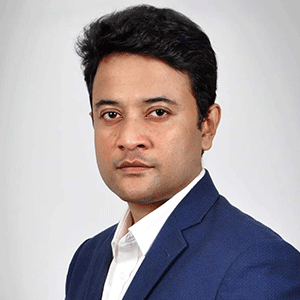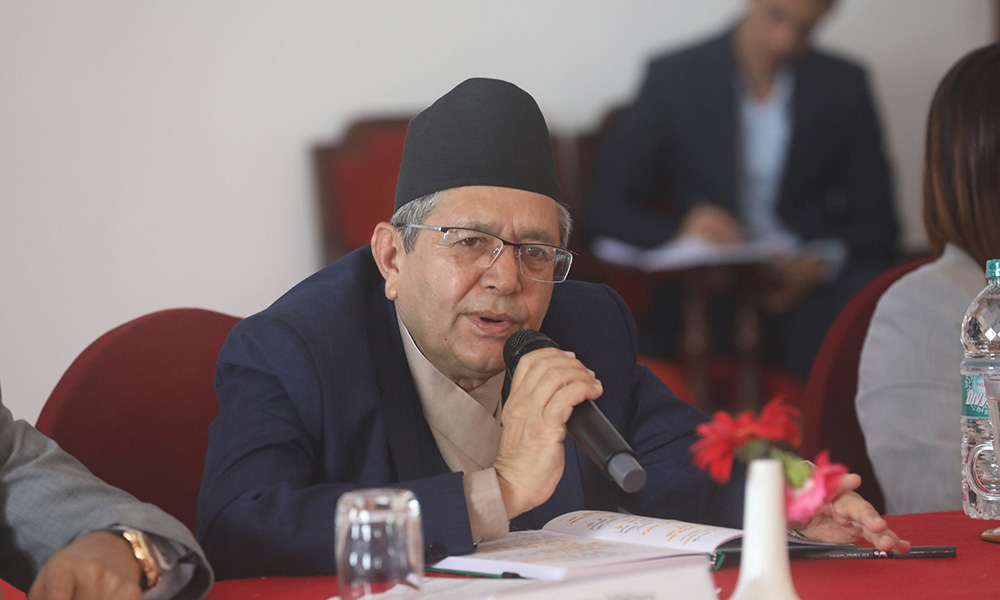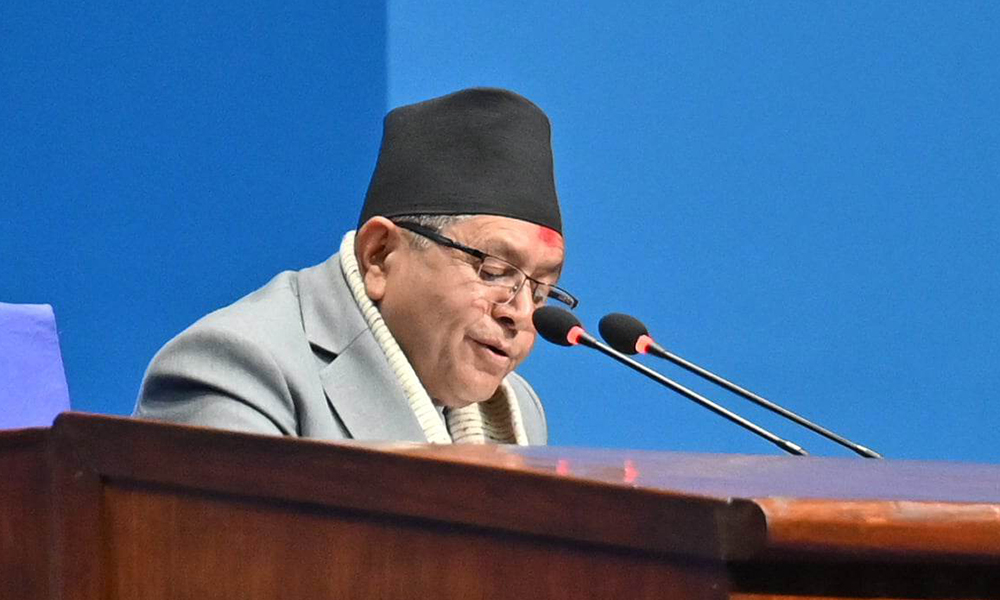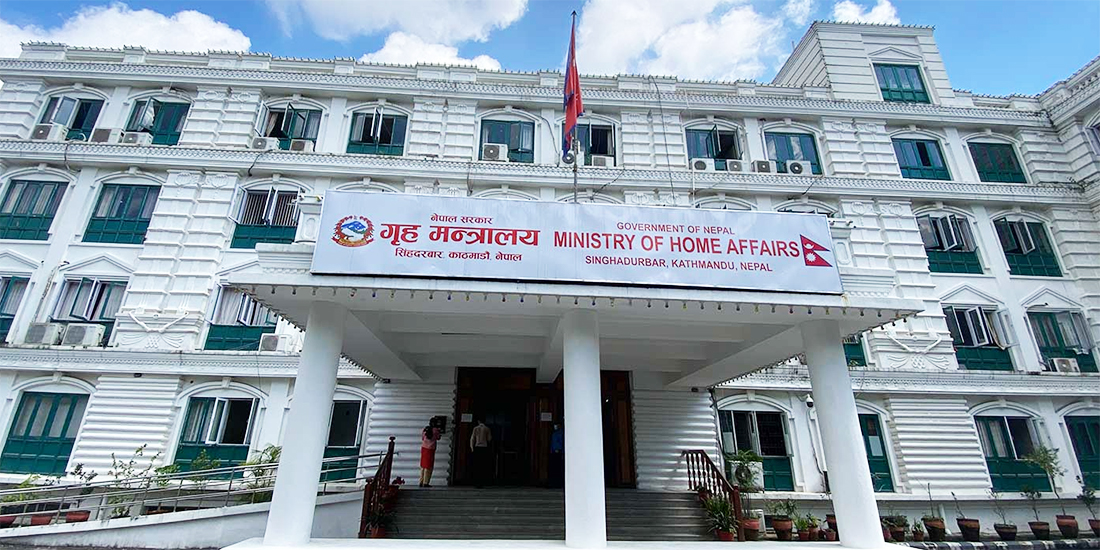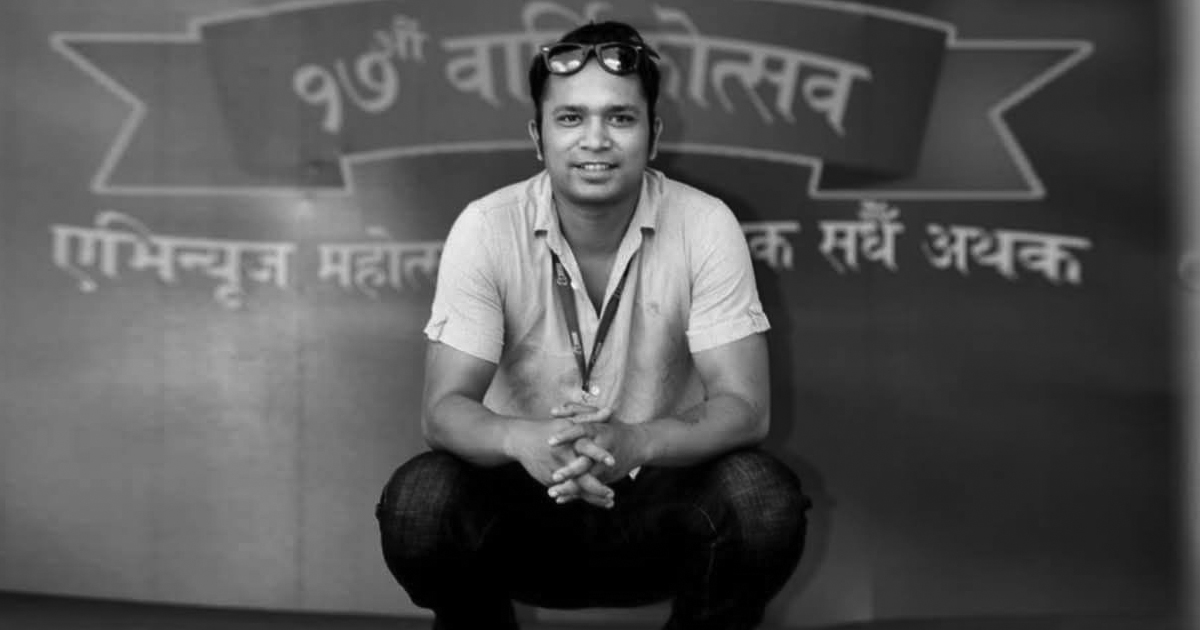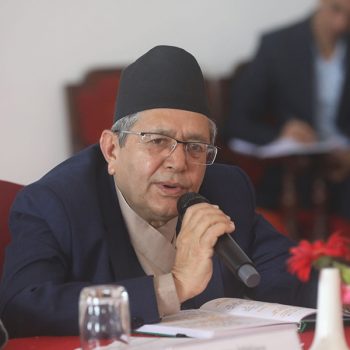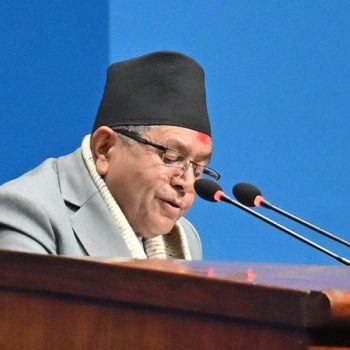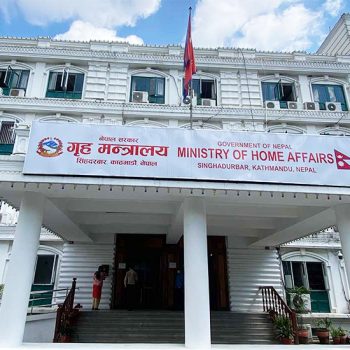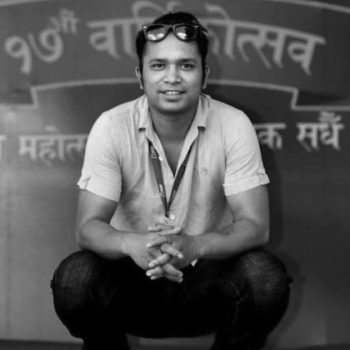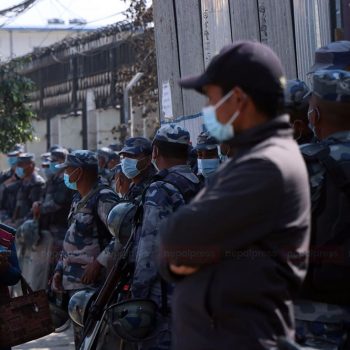From Nobel Prize to National Power: Will Dr. Yunus Reshape Bangladesh?
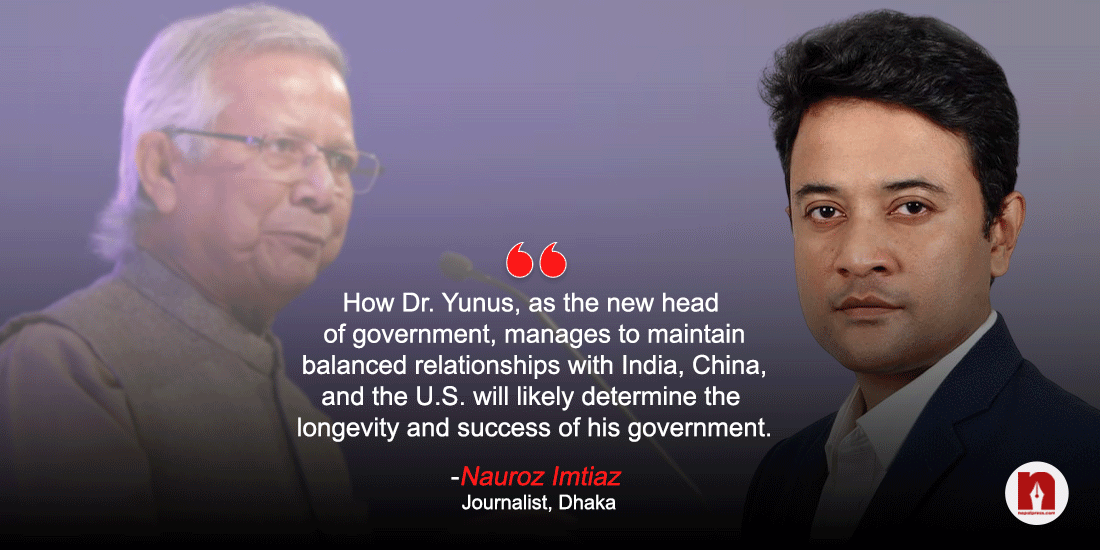
The future will ultimately determine how Dr. Muhammad Yunus, the only Bangladeshi Nobel Peace Prize laureate, will be remembered in history as the Chief Adviser of the interim government of Bangladesh. Despite being an economist who is celebrated and revered worldwide, holding the reins of a state at the age of 84 might put all his past achievements at risk. However, the time to discuss this possibility has perhaps not yet arrived.
In 2006, under the military-backed caretaker government, Dr. Yunus, along with prominent members of the country’s civil society, launched a campaign supporting clean and honest candidates. He even attempted to form a political party called ‘Nagarik Shakti’ (Citizen’s Power). During this period, there was much speculation about the ‘Minus Two’ formula, which aimed to sideline the leaders of the two main political parties, Sheikh Hasina of the Awami League and Begum Khaleda Zia of the BNP. It was rumored that the military also supported Dr. Yunus’s entry into politics. However, he eventually announced the abandonment of his political ambitions.
After Sheikh Hasina came to power for the second time in 2009, she considered Dr. Muhammad Yunus a significant threat. Although she managed to marginalize her main political rival, Begum Khaleda Zia, the politically unaffiliated Yunus posed a challenge that could not be addressed easily. Throughout her nearly 15-year rule, the government of Sheikh Hasina did everything possible within the bounds of the law to harass Dr. Yunus. Additionally, hardcore Awami League supporters both online and offline relentlessly criticized and tried to discredit Yunus and his organizations.
Despite all these efforts, Dr. Muhammad Yunus’s esteemed image and popularity remained unscathed. He continued to be revered in the Western world, and his status and acceptance among the educated population of Bangladesh were never in question. Some of Sheikh Hasina’s close associates privately admitted that had there been a good relationship between Sheikh Hasina and Dr. Yunus, the government could have greatly benefited from Yunus’s international reputation and connections by appointing him as a special envoy. She could have continued to maintain the balanced foreign relations that Sheikh Hasina had established, while further securing her power.
But that never happened!
After losing most of her family along with her father in a military coup in 1975, and surviving numerous assassination attempts in the years that followed, Sheikh Hasina came to trust very few people. She could never bring herself to trust Dr. Yunus, particularly due to the suspicion of his involvement in the ‘Minus Two’ formula during the military-backed caretaker government of 2007-2008.
There was public speculation that Sheikh Hasina might receive the Nobel Peace Prize for providing shelter to a large number of Rohingya refugees from Myanmar. When she did not receive the award, some Awami League supporters suspected Dr. Yunus might have played a role in this outcome, though there is no concrete evidence to support such claims. The Hasina government also suggested that Dr. Yunus was involved in the World Bank’s decision to withdraw funding for the much-publicized Padma Bridge project due to corruption allegations.
Many analysts have characterized the government’s harsh stance and legal actions against Dr. Yunus as political vengeance. Similarly, some view the large-scale student protests in Bangladesh in July 2024 and the subsequent ousting of Sheikh Hasina’s government as Dr. Muhammad Yunus’s political retaliation. In a recent interview with an international media outlet, Yunus even stated that if he had wanted, Sheikh Hasina could not have remained in power for even a moment.
The question now arises: if Dr. Muhammad Yunus indeed harbored thoughts of revenge, would the ousting of Sheikh Hasina’s government be the end of it? The fact that this Nobel laureate has now assumed state power might put his lifelong achievements at risk. Anyone reviewing his résumé would undoubtedly recognize that very few people in the world could claim such an enviable list of accomplishments, achievements, and accolades. Dr. Yunus’s biography and work will surely be studied across nations and generations as that of a pioneering thinker. However, measuring success or failure as a head of government or political leader is an extremely delicate matter. This 84-year-old economist, with no experience in statecraft or politics, has taken on the responsibility of leading his nation at a time when the path to success seems particularly fraught.
Dr. Yunus is not only inexperienced in governing an entire nation, but none of the other members of his cabinet are professional politicians either. Instead, most of them are development workers, retired bureaucrats, or military officers. Remarkably, two students, who haven’t even completed their formal education or started their professional careers, have been appointed as advisors in this diverse government that came to power dramatically amidst a student movement. Some of the advisors are as old as Dr. Yunus himself, burdened by age. None of these key policymakers are familiar with local politics or have ever engaged with grassroots communities as politicians. A similar disconnect from the public and failure to understand the people’s sentiments led the caretaker government of 2007, which took power for two years, to lose public support within a short time. Many also blame Sheikh Hasina’s downfall on her 15-year isolation within a security bubble, surrounded by sycophants, which led to her detachment from the people.
During her more than 15 years in power, Sheikh Hasina had created a system where she had closed off all potential avenues for a natural and peaceful exit. She not only abolished the caretaker government system for elections but also added a constitutional provision that made it legally impossible for an unelected government to assume power. Even if Sheikh Hasina had suddenly died of natural causes or become incapacitated due to illness instead of being overthrown by a popular uprising, there was a risk of widespread chaos and disorder across the country. Even within her party, she had not designated a political successor, so the possibility of infighting and severe polarization after her absence was always present.
However, the reality that Sheikh Hasina might be forced into exile was something no one had anticipated or prepared for. When Dr. Muhammad Yunus took the oath as the chief adviser of the interim government following the absence of the country’s chief executive and the subsequent dissolution of the national parliament by the president, the constitution was still in force, and no state of emergency had been declared. As a result, Dr. Yunus and every member of the interim government remained vulnerable, representing a government that was, in a sense, lacking legitimacy. In the future, they could face charges of violating the constitution, and every decision they made could potentially be deemed legally invalid.
Following his assumption of power, Dr. Muhammad Yunus has expressed his priority for state reform, particularly in the judiciary, public administration, law enforcement, election commission, education, and media, although he has not yet announced a specific roadmap. Both he and other advisers in his government have mentioned multiple times that after necessary reforms, power will be handed over to an elected government through a fair and participatory election. However, no timeline for such an election has been provided so far.
It is believed that the popularity of the recently ousted Awami League is currently at its lowest point compared to any time in the past. After Sheikh Hasina’s sudden departure from the country, the party’s organizational chaos has reached its peak. Therefore, if elections are held soon, they are unlikely to win many seats in the national parliament. On the contrary, BNP and other parties might secure a large number of seats by capitalizing on the public’s unfavorable sentiments on the immediate past ruling party. However, if the elections are delayed for a long time, the Awami League might reorganize itself and expect better results.
Regardless of whether the Awami League, BNP, or any other political party comes to power, the interim government led by Dr. Yunus will remain at risk. If the elected government convenes the parliament and does not amend or revise the constitution or legitimize Dr. Yunus’s ‘unelected’ government’s assumption of power during the exceptional circumstances of the July-August uprising, and if they do not grant the interim government immunity for their actions, they could all face legal jeopardy. Given the current situation, the chances of the Awami League miraculously winning and returning to power in the next election seem extremely low, but it is also difficult to find sufficient reasons to believe that the BNP or any other party would not prosecute the interim government afterward. An order to suspend or repeal a particular provision of the constitution might come from the High Court, but who can say that it won’t be declared illegal in the future as well?
In such a scenario, what Dr. Yunus is doing seems to be the safest course of action. The students who invited him to take on the role of chief adviser are now trying to form a political party. If that new party gains acceptance with the tacit support of the interim government, Yunus and his colleagues might be able to secure their safe future. However, history shows that since gaining independence in 1971, most such initiatives have not succeeded. The people of Bangladesh still largely do not consider any party other than the Awami League or BNP. Although the student movement supported by the educated civil society has achieved rare historic success, grassroots voting dynamics are entirely different and vary by region or parliamentary constituency.
Therefore, the potential legal complications in the future are undoubtedly a serious concern for Dr. Yunus and his interim government, both consciously and subconsciously.
Before COVID-19, Bangladesh’s economic situation was strong enough, but the impact of the pandemic and the Russia-Ukraine war caused a sudden downturn. The government’s ambitious mega-projects required substantial funding, and the financial sector became highly disordered, with widespread corruption and money laundering by individuals close to the government, leading to a worsening crisis. The disparity between import and export earnings had a significant impact on foreign exchange reserves. In this dire economic situation, the fact that Dr. Yunus has taken charge gives many people hope that he might find effective ways to navigate the crisis using his close ties with the Western world and his experience as an economist. However, the biggest challenge for the new government will undoubtedly be to revive the economic flow. If the prices of essential goods continue to rise and financial insecurity worsens, Yunus’s popularity could quickly wane.
In 2007, the military-backed caretaker government initially received widespread applause for its popular rhetoric and actions, but it gradually lost the support and cooperation of the business community. Dr. Yunus currently enjoys the trust of a large segment of the business community, but if they lose confidence or begin to resist, it could be enough to undermine his success.
The students whose movement brought this economics professor to power could also eventually become a significant source of concern for him. A large number of these young people have not yet finished their education, are not yet earning, are unfamiliar with the complexities of life, and have become overconfident in their power after achieving unprecedented success in a historic movement. Given the circumstances, their united demands and needs are being met immediately, which has placed them in a kind of fantasy. As the context or situation changes, these students might develop irrational attitudes and engage in reckless behavior. In such cases, it could become a significant problem if Dr. Yunus is not in a position to deliver everything.
The students’ movement, which helped bring this economics professor to power, could eventually become a significant headache for him. Many of these young people are still in their student life, have not started earning a living, are unfamiliar with the complexities of life, and have become overconfident in their abilities due to their unprecedented success in a historic movement. Their demands are being met almost instantly due to the situation, leading them to live in a sort of fantasy. As the context or situation changes, their lack of experience will slowly expose them to various harsh realities. Already, a segment of them is being criticized for their uncontrolled and immature behavior, which could increasingly annoy the older generation. If these students are not quickly sent back to their classrooms and deactivated, they may go out of control, leading to undesirable situations.
Currently, the most popular and acceptable figure to these young students is Dr. Muhammad Yunus. Many are waiting to see how he manages to control them and involve them in his reform process. However, if the students somehow feel betrayed, their unwavering support could turn against Dr. Yunus.
Although the anti-quota reform movement was led by ordinary students, every political faction opposed to the Awami League actively participated in it. Later, every faction involved in the movement unanimously accepted Dr. Yunus as the head of the interim government. If the immense risk of conflict and clashes among these factions due to claims of post-movement success and ideological differences is not deactivated in time, Dr. Yunus might find himself in unnecessary trouble.
The rise of Islamic extremists in Bangladesh, particularly in curbing militant groups, has seen some visible successes under the Awami League government, which garnered a certain level of support from the Western world for Sheikh Hasina’s leadership. However, after her departure, activities of political and non-political religious parties like Jamaat-e-Islami, Hefazat-e-Islam, and Harkat-ul-Jihad are resurfacing. According to their ideological declarations, all statues across the country have been demolished, and many establishments have had their names changed and signboards hung in the names of religious preachers. Although not as much as feared or claimed by various media, there have been allegations on social media of attacks, threats, and property seizures against followers of other religions. Even cultural activities have started to face a form of invisible restrictions.
Although Dr. Muhammad Yunus is highly regarded by the Western world as an individual, if he fails to play an effective role in controlling the rise of extremism or Islamic radicals in Bangladesh, his position as the head of government may come under global scrutiny.
After the fall of Sheikh Hasina’s government on August 5th, the police force suffered the most significant damage from the nationwide violence. For the first time since independence, a considerable number of policemen have lost their lives within a short period, over a hundred police stations have been attacked, and police property and equipment have been destroyed. The greatest loss, however, has been to the morale of the police force. For several days, there was virtually no law and order in a police-less state. People had to stay up all night guarding their neighborhoods in fear of theft and robbery. After the new government came to power, a lot of effort was needed to get the police back to limited routine work. When the police force will be able to function at full capacity again remains a significant question.
After the unprecedented popular uprising that brought down the government, there has been a surge in the appointment of administrators by removing elected public representatives at the city and village levels of local government across the country. Simultaneously, a wave of change has swept across various social, commercial, trades, and other organizations or institutions in the private sector. Media reports have surfaced of leaders or heads of elected or unelected councils being forced to resign. Additionally, many groups have sporadically taken to the streets to protest and demand various interests related to their interests. If the government’s specific stance is not clarified or steps are not visible, there is a risk that such chaos will continue to increase.
It is widely known that Dr. Yunus’ predecessor, Sheikh Hasina, was a close and favored leader of the neighboring major state of India. India provided her with extensive support to maintain power for a long time and gave her global backing. For this reason, her opponents have always accused her of favoring India by neglecting the country’s interests. After leaving the country in the wake of the popular uprising, when Sheikh Hasina took refuge in India, it was observed that not only the ruling party BJP but also the opposition Congress were equally involved in discussions about her security. Indian media have stated that the end of Sheikh Hasina’s regime in Bangladesh will weaken India on various regional issues.
While Indian politicians and media are expressing concern, anti-India sentiment in Bangladesh is currently at its highest in the past five decades. The student community, the BNP, and like-minded political parties have openly made negative remarks about India’s role in Bangladesh. Several members of the newly formed interim government have indirectly expressed anti-India sentiments. Even Dr. Muhammad Yunus, on the eve of assuming power, hinted in an interview with Indian media that if there is unrest in Bangladesh, there will be no stability in India and its Seven Sisters provinces.
The idea that Dr. Yunus has risen to power with the direct support of global superpowers like the United States and is expected to maintain his position for an extended period is widely circulated not only in Bangladesh but also in various international media and on social platforms, including in India. Consequently, there is speculation that his role may involve fulfilling U.S. interests in this region. International analysts subtly suggest that while India established its dominance in the region through Sheikh Hasina, the U.S. influence is now being reasserted through Dr. Yunus. It is worth noting that Sheikh Hasina had previously claimed that the U.S. wanted to establish a military base on St. Martin’s Island in the southernmost part of Bangladesh and that her refusal might have led to her ousting. Now, with Yunus in power, there is a question of whether the U.S. will gain control over St. Martin’s in reality, which many will be watching closely.
This situation raises concerns and questions about how Bangladesh might be used in the so-called silent battle between two superpowers, China and the United States. China’s massive investments in Myanmar’s Arakan region, particularly around the Arakan port, which includes open maritime trade and covert military plans, could be at risk if U.S. influence prevails in Bangladesh. How China will respond to diminish this influence, and whether that response will increase or decrease Bangladesh’s risks, remains to be seen.
Additionally, India is currently dealing with a silent tension with China over control of its Seven Sisters states, particularly Arunachal Pradesh. The security of the Chicken Neck point near Siliguri, the only link between these states and mainland India, is also a major concern. At such a crucial time, losing influence and control over Bangladesh has put Indian authorities in a difficult position. U.S. influence in Bangladesh will not be comforting for India, nor will it be to China’s liking.
Since coming to power in 2009, Sheikh Hasina had maintained a balanced foreign policy relationship with key players such as the U.S., Europe, Russia, China, and the Arab world. However, with the rapidly changing global situation, maintaining this balance became increasingly difficult towards the end of her tenure. Recently, the U.S. had pressured her to join a regional anti-China alliance, but her refusal made her less favorable to them. At the same time, China became displeased with her for granting India unprecedented benefits, including transit access. With Sheikh Hasina’s departure, the situation has taken a different turn. India may seek to regain its influence to manage tensions with China, while China’s discomfort with the new U.S. influence in this strategically important region will also grow.
How Dr. Yunus, as the new head of government, manages to maintain balanced relationships with India, China, and the U.S. will likely determine the longevity and success of his government. Although the old friendship with the U.S. might yield all possible support, obtaining a cooperative attitude from both India and China—two countries that, for different reasons, are strongly opposed to U.S. influence in this region—will undoubtedly be a formidable challenge for Dr. Yunus.


